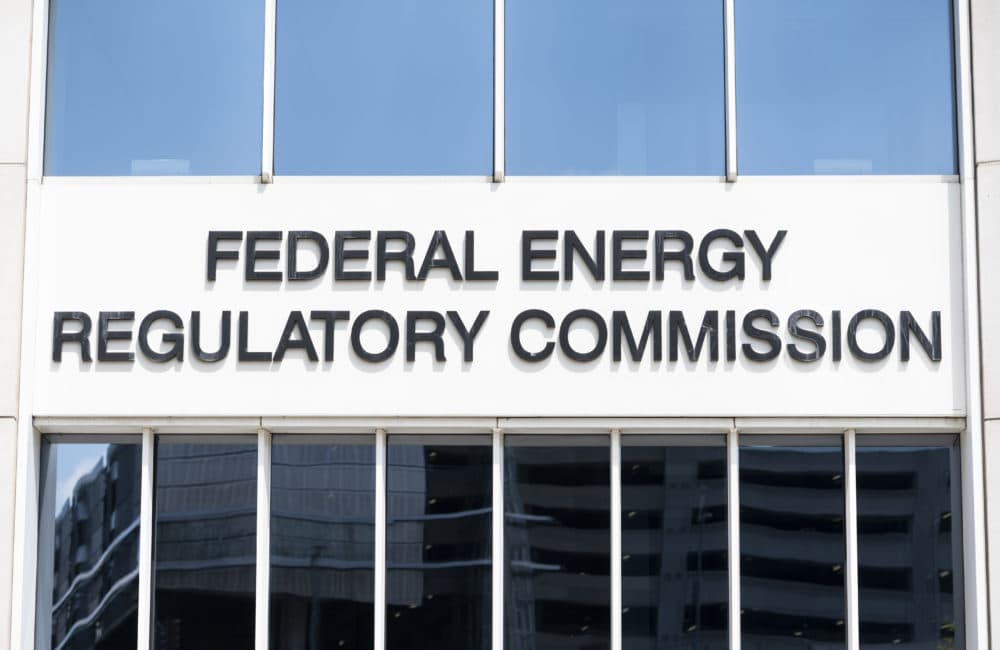Advertisement
Environmental Groups Sue Federal Regulators Over Western Mass. Pipeline Plan

Environmental groups are challenging a federal agency's decision to allow natural gas expansion in central Massachusetts, arguing legal precedent — and a change in regulatory leadership -- is on their side.
On Friday, the Washington, D.C. Court of Appeals will hear oral arguments from two groups opposed to the proposed expansion of a compressor station in Agawam, which the Federal Energy Regulatory Commission (FERC) approved in 2019.
The project in question is a proposal from the Tennessee Gas Pipeline Company, LLC — a subsidiary of energy giant Kinder Morgan — to build 2.1 miles of new natural gas pipeline and replace two small compressors with a larger unit at its Agawam site. The company says these upgrades will allow it to deliver more natural gas for distribution in the greater Springfield area, and as such, “alleviate capacity-constrained New England gas markets.”
Opponents of the project, meanwhile, want the panel of appellate judges to nullify the permit issued by FERC, saying the project will contribute to climate change, prolong our dependence of fossil fuels, and harm local residents by increasing pollution in an area already known for poor air quality and pose public safety risks. They also argue that FERC violated federal law and disregarded legal precedent by allowing the project to move forward.
“The National Environmental Policy Act requires FERC to meaningfully evaluate greenhouse gas emissions from fossil fuel production and transportation projects,” wrote petitioners, Berkshire Environmental Action Team and Food & Water Watch, in court documents.
A spokesperson for FERC declined to comment.
A spokesperson for Kinder Morgan declined to comment on the litigation, but the American Gas Association explained the stakes for its members in an Amicus Brief filed in the case.
“If this Court vacates the FERC-issued certificate such a precedent could threaten utility access to reliable natural gas supplies and the development of projects intended to ensure reliability, and therefore hinder the utility industry’s ability to provide reliable and resilient service to customers,” attorneys for the association wrote.
A matter of precedent
Beyond arguing the project poses direct harm to human health and the climate, the opponents say FERC “arbitrarily and capriciously departed from" a 2017 D.C. court decision about the controversial Sabal Trail pipeline, a 517-mile gas pipeline running through Alabama, Georgia and Florida.
In that case, the Sierra Club argued that FERC is required under the National Environmental Policy Act to consider “upstream” and “downstream” emissions from pipeline projects. The court ruled in the Sierra Club’s favor and vacated the permit for the project.
Food & Water Watch attorney Adam Carlesco said the 2017 Sierra Club case clearly states that FERC is “required to look at the direct and indirect impacts of the projects in which they permit” — in other words, how natural gas is extracted and used matters -- and that petitioners will argue FERC violated this precedent when permitting the new pipeline and compressor station in Agawam.
As part of the 2019 environmental review, the commission calculated emissions associated with construction and operation of the proposed Agawam project -- 4,531 tons and 113,131 tons of CO2-equivalent emissions, respectively — but Carlesco says that it didn't take the next necessary step and figure out how those emissions would impact the climate and human health.
“They took no look whatsoever at the [impact of the] gas that is flowing through those pipelines and through that compressor station to its end source: being burnt within businesses and residences within the Springfield area, an area the Asthma and Allergy Association of America has deemed one of the worst in the country for asthmatics," Carlesco said. "They really only looked at the impacts that would come from moving trucks into Agawam, putting in two miles of pipeline, installing what is essentially a large jet engine at this compressor station system and [the gas] the compressor station itself would burn in powering it.”
Kathryn Eiseman of the Pipe Line Awareness Network for the Northeast, Inc., which opposes the Agawam expansion, said this lawsuit “has the potential to bring to the fore the climate impacts of natural gas infrastructure … and that could make it harder for projects to get approved.”
Should the court side with the petitioners, she believes we're more likely to see FERC "take a harder and broader look at the build out of gas infrastructure" in the future.
A New Role For A Dissenting Commissioner
FERC issued the Agawam certificate in late 2019 after conducting an environmental review and evaluating whether the project is "in the public interest." While the majority of commissioners felt the company “has demonstrated a need” for the expansion and “that the project’s benefits to the market outweigh any adverse effects on other pipelines and their captive customers, and on landowners and surrounding communities,” one commissioner, Democrat Richard Glick, dissented to some parts of the decision.
“The Commission once again refuses to consider the consequences its actions have for climate change,” he wrote. “That failure forms an integral part of the Commission’s decision making: The refusal to assess the significance of the Project’s contribution to the harm caused by climate change is what allows the Commission to state that approval of the Project ‘would not constitute a major federal action significantly affecting the quality of the human environment’ and, as a result, conclude that the Project is in the public interest and required by the public convenience and necessity.”
He went on to argue that “Claiming that a project has no significant environmental impacts while at the same time refusing to assess the significance of the project’s impact on the most important environmental issue of our time is not reasoned decision making.”
Berkshire Environmental Action Team and Food & Water Watch sued in 2020 after FERC declined to reconsider its decision.
Carlesco said Glick’s opinion is particularly important because President Biden promoted him to FERC chairman in January, meaning he'll have more power within the commission. And come June, Biden will have another opportunity to appoint someone to the commission, giving Democrats a 3-2 majority.
“I would fully expect that Glick is going to be practicing what he preached in his dissenting opinions,” Carlesco said.
